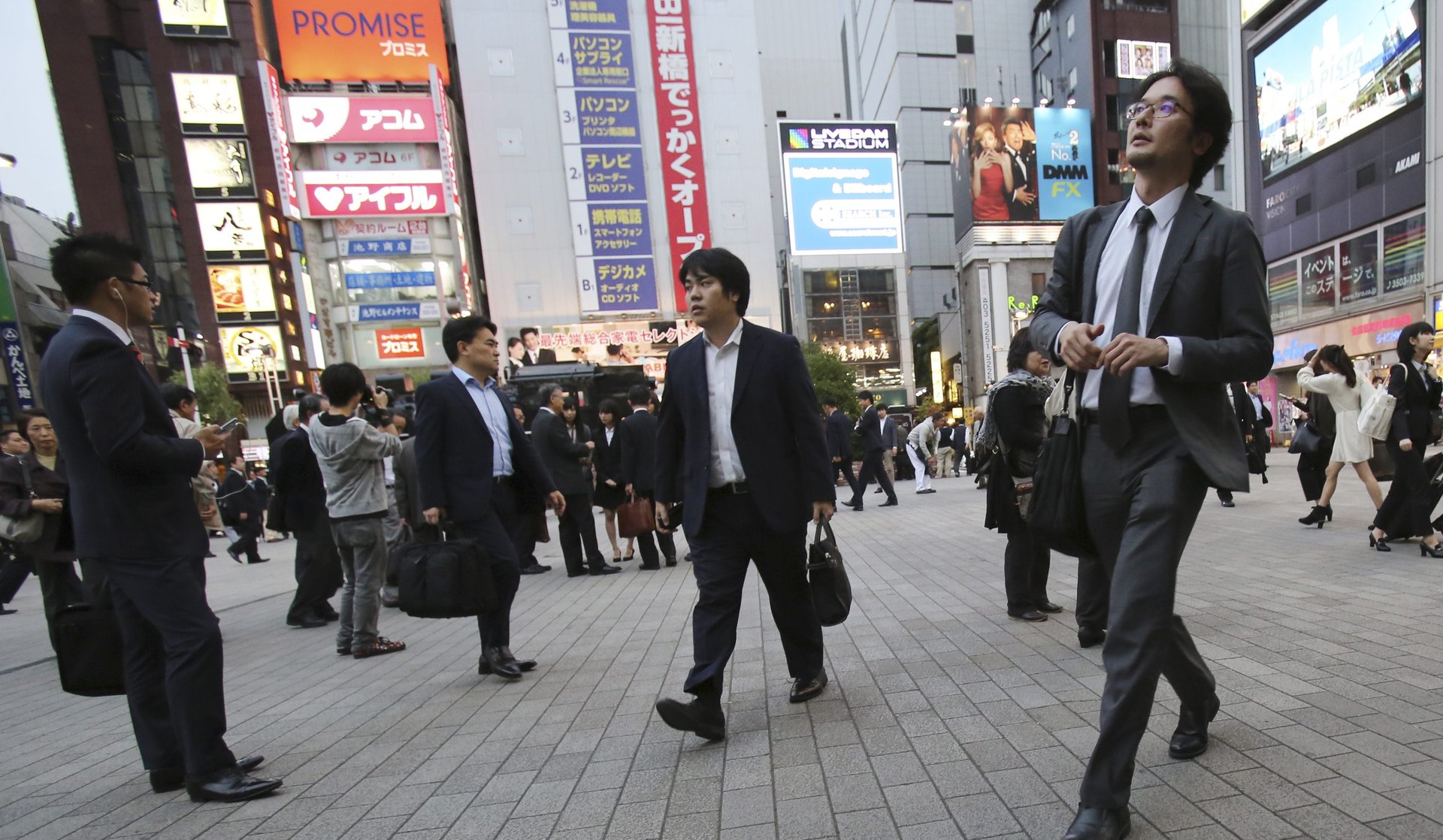A lawmaker’s abuse of her secretary has Japan talking non-stop about “pawa hara”
A recording of a female lawmaker allegedly hurling verbal and physical abuse at her secretary has been rekindling attention over the issue of power harassment in the workplace—rendered as pawa-hara—in Japan.


A recording of a female lawmaker allegedly hurling verbal and physical abuse at her secretary has been rekindling attention over the issue of power harassment in the workplace—rendered as pawa-hara—in Japan.
The matter came to light after a magazine published a recording earlier this summer purportedly of Mayuko Toyota, a lawmaker in the ruling Liberal Democratic Party (LDP), screaming “baldy” and “you should die” at her male assistant, who implores Toyota not to hit him. She later submitted her resignation to the party, and earned the nickname ”pink monster” by Japanese media (link in Japanese), as she often wears pink. An LDP official said at the time she had been hospitalized because of her “unstable mental condition.”
Abuse of power by bosses is nothing new in Japan, where many companies remain deeply hierarchical, and customs like not leaving the office before your manager goes home are still common. The term pawa-hara itself was coined in 2003 (pdf, p.1) by a Japanese social psychologist. Perhaps as a sign of the prevalence of everyday harassment across different facets of life in Japan, the term is just one of a galaxy of portmanteau words defining different forms of hara: mata-hara for maternity harassment, seku-hara for sexual harassment, and aka-hara for academic or campus harassment. Forcing a female employee to sing a romantic song with a male manager at a karaoke outing, for example, could be considered (pdf, p.27) an example of seku-hara.
“The issue has become more public in Japan in the past year. The idea of harassment as a criminal activity is starting to come to people’s minds now,” said Parissa Hagharian, a professor in management at Sophia University in Tokyo. “Japanese companies are on a learning curve… There have been a number of issues in the media, and companies are very aware of that.”
Japan is now in the midst of a labor reform frenzy, as prime minister Shinzo Abe’s government tries to deal with deep-seated problems that are impeding the country’s economic growth and efficiency. These problems include inadequate childcare facilities, a severe labor shortage, and excessive working hours that have allegedly led in some cases to suicide—the last is seen as a by-product of pawa-hara in Japan’s work culture. In a labor reform plan outlined in March, the government mentioned the need (link in Japanese) to strengthen measures against power harassment in Japanese workplaces.
“An explicitly hierarchical relationship between a lawmaker and their secretaries is not something uncommon in Japanese politics,” wrote the Mainichi newspaper in an editorial in June. “On the other hand, power harassment at workplaces in the private sector is under increasing scrutiny.”
Japan’s Ministry of Health, Labour and Welfare launched a website (link in Japanese) and Twitter account in 2015 called “No pawa-hara,” breaking down power harassment into six different categories: physical abuse, mental or emotional abuse, deliberately isolating an individual in the workplace, overworking an employee, giving an employee work that is far below their skill level or scope, and infringement of privacy by asking personal questions not pertinent to work.
“Stories of pawa-hara are coming one after another,” said Kaori Kawai (link in Japanese), a health sociologist who researches industrial stress, in an essay published in July asking where the line between pawa-hara and firm guidance should be drawn in the workplace—the answer to which human resources departments all over Japan are no doubt going to be trying to find out.